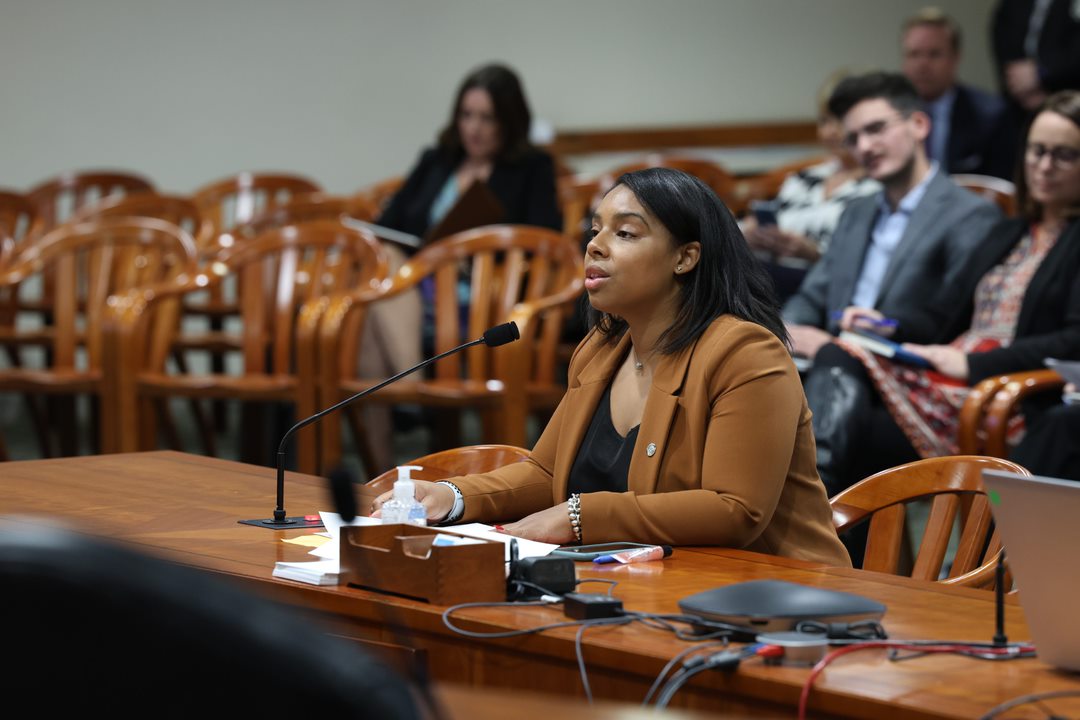LANSING, Mich., April 19, 2023 — The House Local Government and Municipal Finance Committee met today to discuss expanding Michigan’s land bank laws. Under current Michigan law, the only cities that can form a land bank are those with a “first-class school district,” which means a school district with more than 100,000 pupils. As it stands, Detroit is the only city that falls under that category. State Rep. Kristian Grant (D-Grand Rapids) offered testimony during the committee hearing in support of her House Bill 4375, which aims to broaden qualifications for cities to form land banks.
“The narrow scope of current land bank laws stifles community growth and economic development across Michigan,” Grant said. “My bill would widen that scope by amending the definition of ‘qualified city’ to include those that have a population of at least 50,000 and reside in a county where there is no existing land bank. This would allow local governments to coordinate with the State Land Bank Authority to acquire local vacant properties that are underutilized and redevelop them for the community, which can spur local development and help neighborhoods thrive. Let me put it this way — being able to create land banks is a critical economic tool for cities to redevelop urban cores, remove blight and stabilize property values for surrounding homes. We should maximize the use of every parcel of land, especially when so many communities in Michigan are facing a housing crisis.”
Background: Kent County previously had a land bank, which was dissolved in December 2018. Since then, Grand Rapids, Kentwood and Wyoming have been deprived of access to creating land banks, and many other cities across Michigan have never had access to them, including St. Clair Shores, Sterling Heights, Warren, Ann Arbor and many others. HB 4375 would allow these cities to begin coordinating with the State Land Bank Authority to operate their own land bank without the need for their county to take action.

